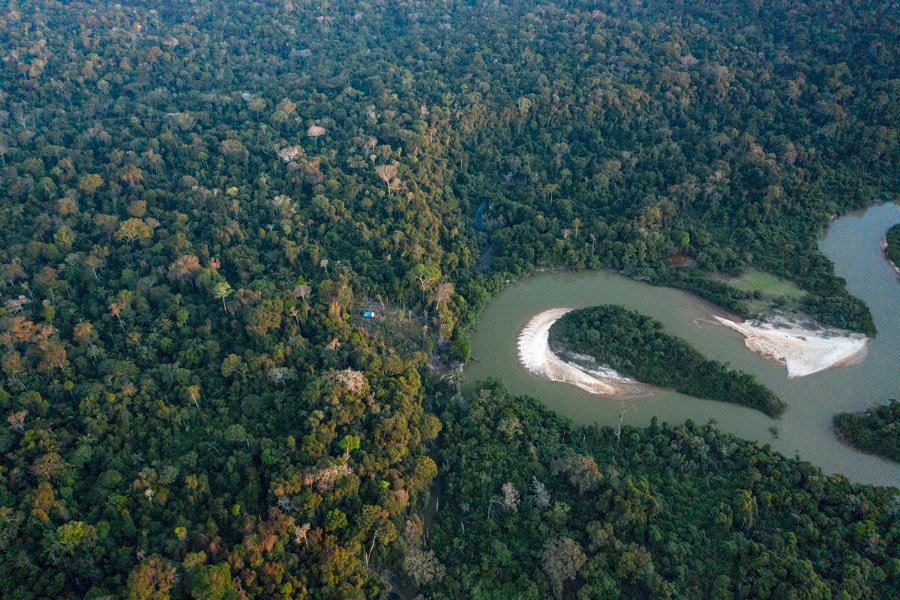
How the global appetite for leather seats in luxury SUVs is worsening deforestation in the Amazon
A New York Times investigation into Brazil's rapidly expanding slaughterhouse industry has identified loopholes in its monitoring systems that allow hides from cattle kept on illegally deforested Amazon land to flow undetected through Brazil's tanneries and on to buyers worldwide
 An aerial view of he forested area where Lourenço Durães, 71, lives and taps rubber trees in the Brazilian state of Rondônia on July 11, 2021. Durães is among the last of the area’s community of rubber tappers. (Victor Moriyama/The New York Times)
An aerial view of he forested area where Lourenço Durães, 71, lives and taps rubber trees in the Brazilian state of Rondônia on July 11, 2021. Durães is among the last of the area’s community of rubber tappers. (Victor Moriyama/The New York Times)
BURITIS, Brazil — One morning this summer, Odilon Caetano Felipe, a rancher who raises cattle on illegally deforested land in the Amazon, met with a trader and signed over 72 newly fattened animals. With that stroke of the pen, Felipe gave his cattle a clean record: By selling them, he obscured their role in the destruction of the world’s largest rainforest.
Over lunch shortly after the July 14 sale, Felipe spoke openly about the business that has made him wealthy. He acknowledged cutting down the thick Amazon forest and that he had not paid for the land. He also said he structured his sales to hide the true origins of his cattle by selling to a middleman, creating a paper trail falsely showing his animals as coming from a legal ranch. Other ranchers in the area do the same, he said.
“It makes no difference,” he said, whether his farm is legal or not.
A New York Times investigation into Brazil’s rapidly expanding slaughterhouse industry — a business that sells not only beef to the world, but tons of leather annually to major companies in the United States and elsewhere — has identified loopholes in its monitoring systems that allow hides from cattle kept on illegally deforested Amazon land to flow undetected through Brazil’s tanneries and on to buyers worldwide.
Felipe’s ranch is one of more than 600 that operate in an area of the Amazon known as Jaci-Paraná, a specially protected environmental reserve where deforestation is restricted. And transactions like his are the linchpins of a complex global trade that links Amazon deforestation to a growing appetite in the United States for luxurious leather seats in pickup trucks, SUVs and other vehicles sold by some of the world’s largest automakers, among them General Motors, Ford and Volkswagen.
©2019 New York Times News Service







